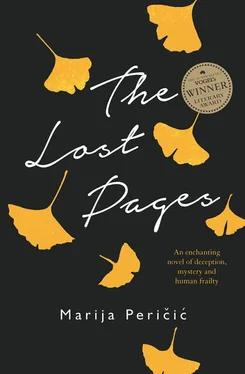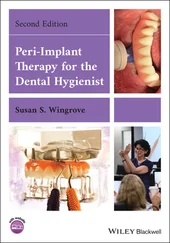I nodded stupidly. My hand reached out timidly for the papers he held. Narrowing my eyes I tried to discern the writing. It looked from this closer distance identical to my own, I was sure of it.
‘May I…?’ My voice came out in a squeak that was ignored.
‘You see, Max,’ Theodor said, sounding tired, ‘you may be well known now, but the reading public is fickle. They will so very quickly forget you. The mileage of a book is only so long, and you must never forget that there are young writers, new writers, writers like Franz, coming up at every moment. It is imperative, if you want to survive, that you keep on producing work. If you want to survive.’
My eyes were still fixed on the papers. I thought that I could pick out a few phrases there on the page that seemed familiar. I wrestled with a fresh wave of shame at the recollection of the story’s content. Perhaps it was better that it had been attributed to Franz. But how could Theodor have got hold of the thing?
‘But of course,’ Theodor went on, and his voice had now softened, ‘I am eternally indebted to you for introducing me to Franz.’ He put the pages back underneath the pile of papers on his desk, appearing to be lost in thought for a moment. I had shrunk into the chair. If it really was my story that he held, there was absolutely nothing that could be done about it. I glanced up at Theodor’s face and saw that he was giving me a long, appraising look.
‘Well, I am prepared to give you the time you ask for, but only if you will do something for me,’ Theodor said.
Now he looked sly. I waited for him to go on.
‘There appears to be an emerging interest in travelogues.’
I had no plans to travel anywhere. I am not a man who romanticises travelling; not through any closed-mindedness or lack of imagination, but because it causes me such considerable bodily suffering. Being confined in too-small chairs, uncomfortable beds and jolting carriages are the chief memories that remain to me of most of the journeys on which I have embarked.
The thought also crept into my mind that writing a travelogue was beneath me. I was not some Baedeker hack, [14] A copy of the 1905 Austria–Hungary Baedeker guidebook was also found among the manuscripts.
touring the cities of Europe and rating it in stars. But I could see that I was in no position to refuse him. I feigned some enthusiastic sounds and repeated, ‘Travelogues,’ in a satisfied tone that I hoped was believable.
‘They are becoming very popular,’ he said. ‘A travelogue written by a well-known author would be even more of a success. However, I think we could do one better than even that.’
I hoped he was not going to ask me to travel to some inhospitable, far-flung place. Images came to me of my crooked form toiling across narrow jungle paths crowded with wild animals, over jagged snow-covered mountain peaks, through windy deserts.
‘Africa?’ I asked.
He ignored me. ‘What is better than a travelogue written by one well-known author?’ He paused and bared his teeth in a smile. Then he answered his own question. ‘A travelogue written by two well-known authors.’ His teeth flashed.
He was going to ask me to write a travelogue together with Franz. The problems with this scenario came rushing into my head one after the other. I was by this time so weary of the double dealings and trickery in which I had been engaged. And the cost! It would be ruinous. There was no way that I could afford to pay for Gustav or Alexandr to accompany me on a tour that might last weeks. There was, I thought, always the possibility of going with the real Franz, but the thought of seeing Franz for a few hours, let alone spending weeks with him confined in train compartments, restaurants and museum exhibits, was too terrible to contemplate. And then there was Anja. I could not bear to be separated from her. I pictured her again as she stood there laughing on the landing, her face pale with cold. To go away from Prague now would be a mistake, of that I was sure. I desperately cast about for possible excuses.
Theodor took my silence for assent. ‘Well then, that’s settled. I thought a tour of the spa towns of Bohemia would be popular. You’ll begin with Karlsbad and then go from there. I will arrange the tickets and bookings.’
He began to shuffle his papers around on his desk in an attitude of dismissal.
‘Oh, one more thing—I will, of course, need to ask you to sign an agreement committing to the completion of Schopenhauer by the revised deadline. And also for the travelogue.’
He pushed a sheet of paper across at me. He had never before insisted on such formalities and the request was like an official withdrawal of his affection. I was much too agitated to read the agreement and only scanned the page mechanically, taking nothing in. My hand was numb as I signed.
‘Good,’ he said as he took the paper back from me. He gave me a carbon copy and also a sealed envelope, very thick. ‘This is also for you: some information about Karlsbad and Marienbad.’
He then opened one of his desk drawers and took out another envelope. He sat weighing it in his hands for a moment while he looked out of the window, before turning and fixing me with a narrowed gaze.
‘And I wonder if you might also pass this on to Franz for me?’ he said. He handed me the envelope. ‘It’s a cheque.’ He seemed to be watching me closely, no doubt looking for any signs of murderous envy. I wondered if he had given me the envelope with the purpose of provoking me. But I gave him no satisfaction on that quarter. I accepted it with a smile and politely took my leave of him, keeping my smiling mask intact until I was well away from the building.
A FEW WEEKS LATER, FRANZ—THE REAL FRANZ—AND I WERE sitting side by side in a train compartment bound for Karlsbad. I had visited Karlsbad before, long ago in my childhood. My mother had taken me there, and on to Marienbad, and any other spring or well that promised miracle cures for those who took its waters, in the vain hope that my crooked spine might be cured. She had approached each new place with shining optimism, completely convinced that it held the power to cure me. She patiently held me in the various pools and under the springs, she consulted a variety of doctors, and fed me foul-tasting water from cups and bottles of numerous designs, but each time the treatments failed to have any effect.
Somehow this failure never seemed to deter her or diminish her certainty, so when she met an old woman in a restaurant in the town who told her of an even more beneficial and healthful spring just over the hills she simply transferred her conviction and we set off to this new location. As a child I found this very confusing. I had always interpreted her certainty as absolute—if she were certain about something then it was sure to be a fact, beyond question—so I was perplexed when my body remained exactly the same as we went from town to town, spring to spring. It seemed to me to be an inexplicable failure in the mechanism of the universe, as though the constellations had suddenly begun to turn on a new axis or the seasons had reversed. I could not understand her continuing composure in the face of such chaos. At the same time it had also seemed like my personal failure: a failure to control my own body. Other people had no trouble mastering their own bodies, but I was mysteriously powerless to do this and was held instead within my body’s rigid walls like a prisoner.
Only vague memories remained to me of Karlsbad: mostly of the damp and grey atmosphere and that feeling of guilt, a vague panic of things going wrong and it perhaps being my fault, all of which was connected to that penetrating, sulphurous smell that lingers like mildew in the streets and houses of all bath towns. I could recall that oppressive odour with remarkable clarity, as though clouds of it were blowing into the train compartment through the slit of the opened window.
Читать дальше












